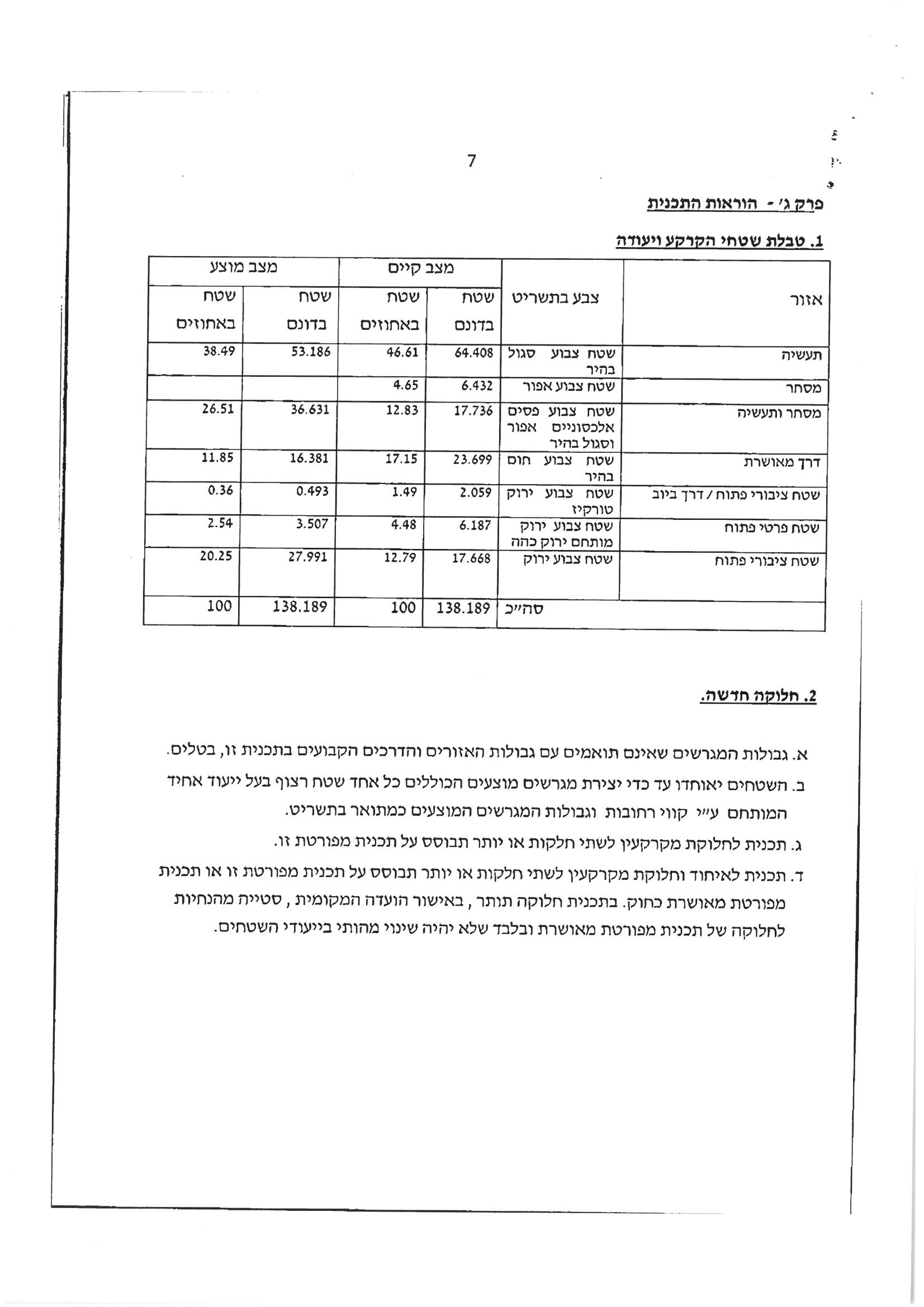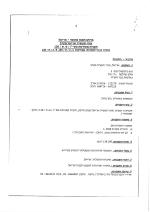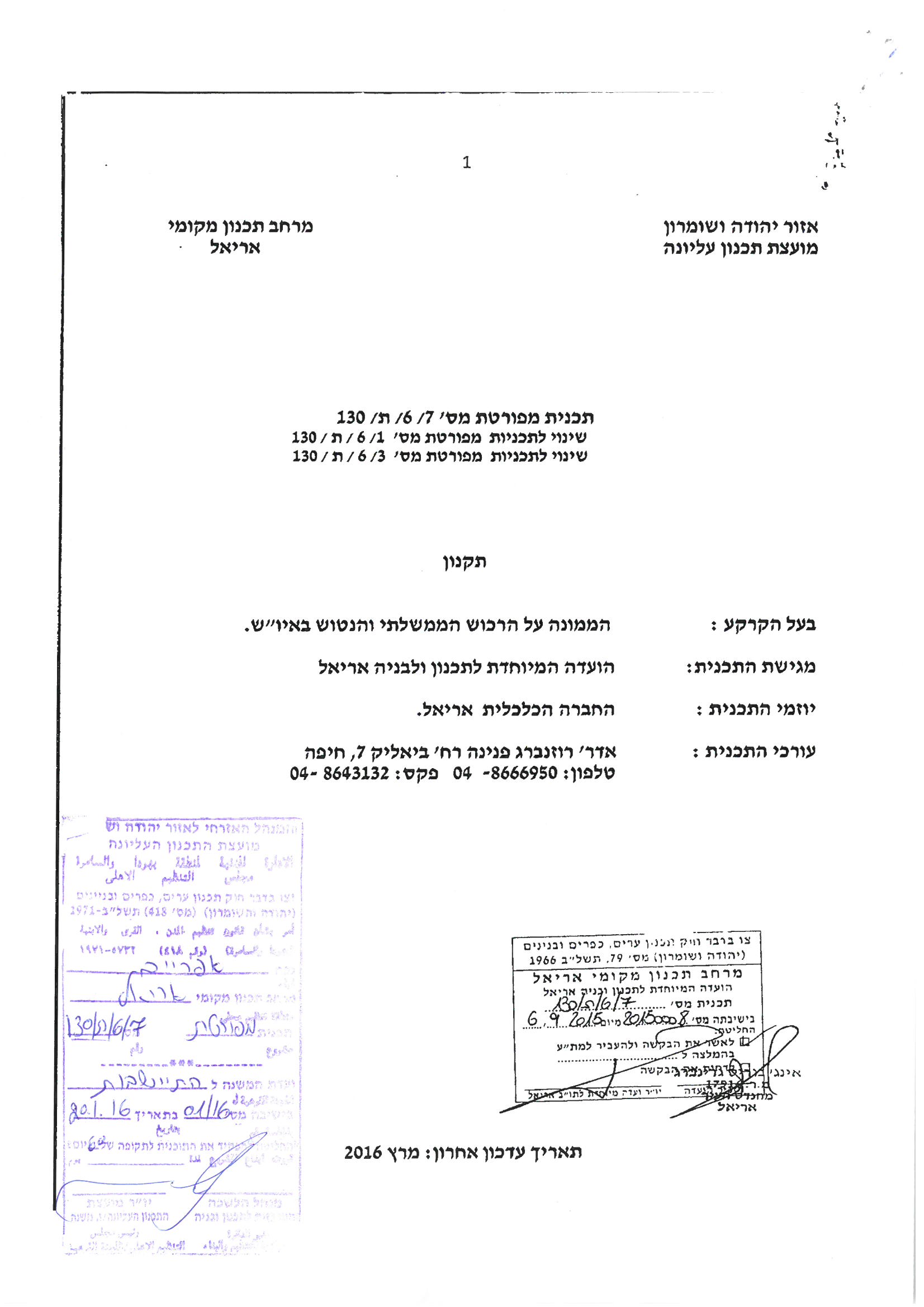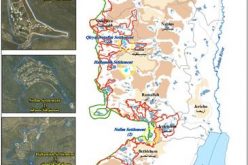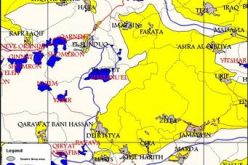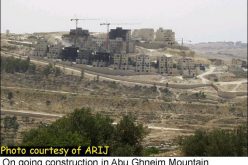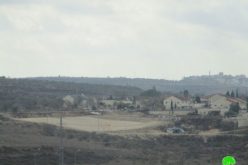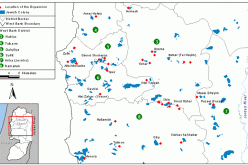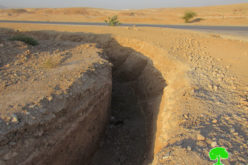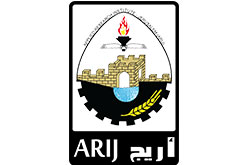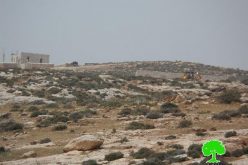Large scale land confiscation in Salfit Governorate
“The expansion of Barqan Industrial settlement on 138 dunums of Haris village lands”
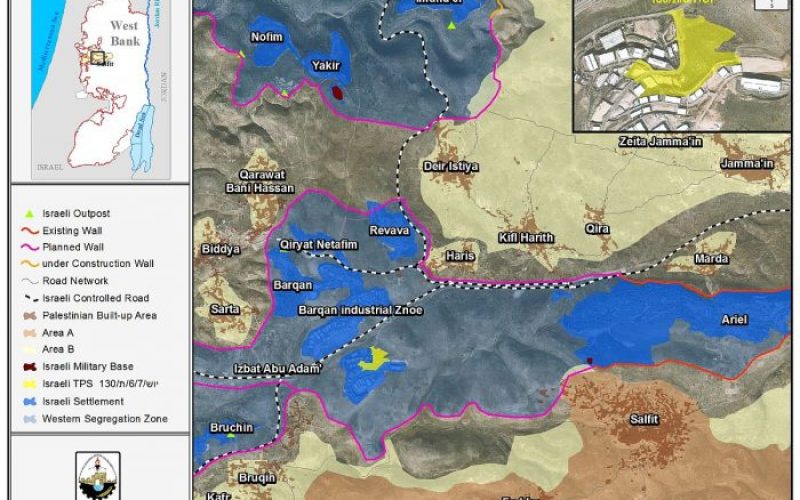
On the 4th of September 2016, the higher planning council at the Israeli civil Administration deposited a new town planning scheme (TPS) intended for the expansion of an industrial zone to the west of Ariel settlement, named “Barqan Industrial Zone” in Salfit Governorate. The TPS holds number יוש/ 7/ 6/ ת/ 130 and states the confiscation of 138.2 dunums of lands of Haris village in Salfit Governorate for that purpose . Details of the plan are summarized below in Table 1:-
|
Table 1: details of TPS No. יוש/ 7/ 6/ ת/ 130 |
|||
|
1 |
Type of Building |
Area (Dunums) |
Percent |
|
2 |
Industry |
53.186 |
38.49 |
|
3 |
Trade and Industry |
36.631 |
26.51 |
|
4 |
Roads |
16.381 |
11.85 |
|
5 |
Open Public Space |
27.991 |
20.25 |
|
6 |
Private Space |
3.507 |
2.54 |
|
7 |
Road to a sewage facility |
0.493 |
0.36 |
|
Total |
|
138.189 |
100% |
|
Israeli Ministry of Finance website |
|||
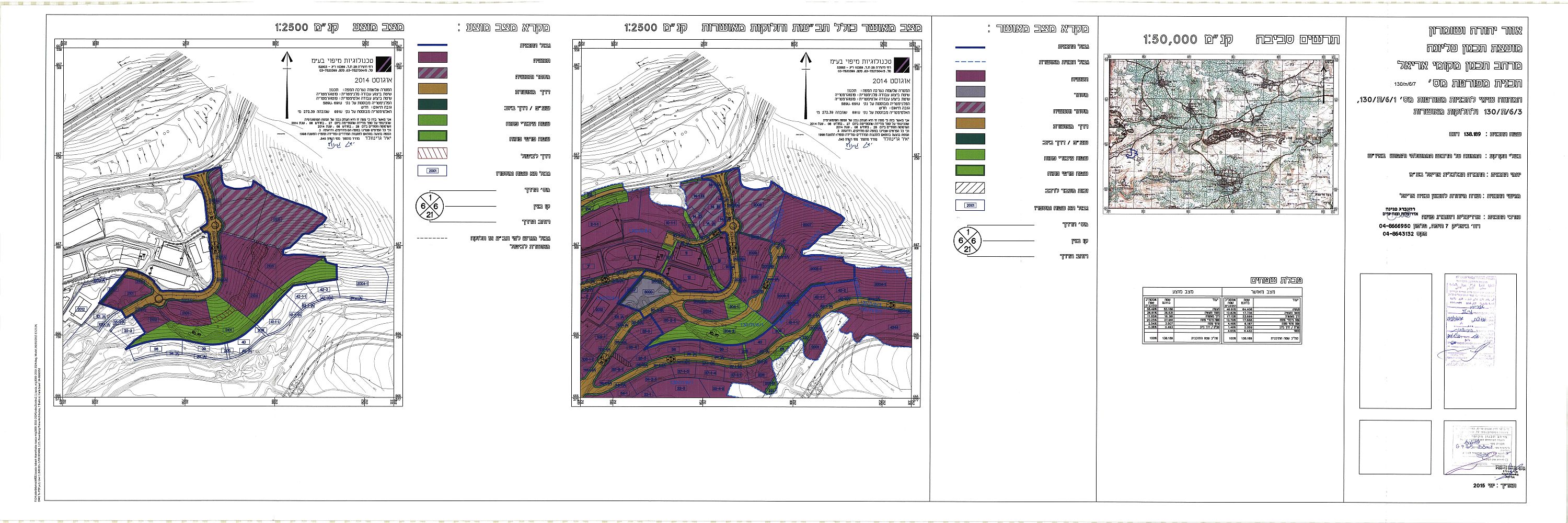
Photo 1 : map of TPS No. יוש/ 7/ 6/ ת/ 130
Photos 2-4: Details of TPS No. יוש/ 7/ 6/ ת/ 130
Map 1: The expansion to take place in Barqan Industrial settlement
The targeted Industrial zone is actually surrounded by a set of Israeli settlements from almost all directions. It is bordered by Barqan, Netafim and Revava settlements from the north; Ariel settlement from the East, Bruchin settlement and the Palestinian village of Sarta from the West and an open area from the south. It was established in 1981 on lands of Haris, Burqin and Salfit communities in the Salfit Governorate. This industrial settlement is affiliated to what has become known today as the “Ariel settlement bloc”, a bloc of settlements that has been "strategically” built on a mountain ridge surrounded by Palestinian communities in Salfit Governorate. The bloc includes a number of settlements including Ariel (one of the largest settlements in the oPt), Revava, Qiryat Netafim, Barqan, and Barqan Industrial Zone in addition to a number of settlements that will become part of the bloc if Israel implements its unilateral separation plan in the area exemplified in the construction of the Segregation wall.
Over the years of the Israeli occupation, settlements in the occupied West Bank constantly received the attention of the Israeli Governments who continued to support their expansion despite the very little known about the impact of such expansion on the neighboring Palestinian communities and the encroaching of their lands for that purpose. The Barqan Industrial Zone is one example. Its importance as the only industrial settlement in the area of Salfit (within the Ariel settlement bloc) and the backbone of industry, has attracted the attention of the consecutive Israeli Government over the years and continued to receive the necessary support to keep it alive. Additional plans were deposited in the area during the past few months and will contribute much to its expansion in the near future. Table 2 below gives details of the plans
|
Table 1: Israeli plans in Ariel settlement bloc |
||||
|
No. |
Settlement Name |
TPS No. |
Purpose |
Date of Deposit |
|
1 |
Ariel |
Industry and Public Open Spaces – changing boundaries |
27/03/2015 |
|
|
2 |
Ariel |
Changing the boundaries of plots |
27/03/2015 |
|
|
3 |
Barqan |
Barqan – Industrial Zone |
16/11/2015 |
|
|
4 |
Ariel |
Ariel – Industrial Zone |
10/6/2016 |
|
|
6 |
Ariel |
Ariel – Industrial Zone -West |
27/07/2016 |
|
|
Source: Israeli Ministry of Finance |
||||
To sum up
The seizure of land near Ariel Industrial Zone is carried out for absolute industrial purposes according to the plan deposited by the Israeli Civil Administration. The plan, if implemented, it is likely to cause the seizure of more Palestinian land in the area and further threaten the surrounding open space which is already off access to Palestinians. The Israeli Government's construction of settlement, outposts, Industrial zones, military bases and camps in the occupied Palestinian territory violates numerous statutes of international humanitarian law, including:
The Fourth Geneva Convention of 1949, Article 49, and paragraph 6 of which states: 'The occupying power shall not deport or transfer parts of its own population into the territories it occupies.' Article 53 of the Convention also prohibits 'any destruction by the Occupying Power of real or personal property belonging individually or collectively to private persons, or to the State, or to other public authorities, or to social or cooperative organizations, is prohibited, except where such destruction is rendered absolutely necessary by military operations.'
The Hague Regulations of 1907, Article 23 of which prohibits the destruction or seizure of occupied property, unless it is imperatively demanded by military necessity.
United Nations Security Council Resolution 242 (1967) which requires Israeli armed forces to withdraw from 'the territories occupied' in the 1967 war, including the West Bank and Gaza Strip.
United Nations Security Council Resolution 452 (1979) which calls upon 'the Government and people of Israel to cease, on an urgent basis, the establishment, construction and planning of settlements in the Arab territories occupied since 1967, including Jerusalem.'
United Nations Security Council Resolution 465 (1980) which 'Determines that all measures taken by Israel to change the physical character, demographic composition, institutional structure of status of the Palestinian and other Arab territories occupied since 1967, including Jerusalem, or any part thereof, have no legal validity and that Israel's policy and practices of setting parts of its population and new Immigrants in those territories constitute a flagrant violation of the fourth Geneva convention relative to the protection of civilian persons in time of war and also constitute a serious obstruction to achieving a comprehensive, just and lasting peace in the Middle East.'
Prepared By
The Applied Research Institute – Jerusalem
ARIJ

